
Scientific studies have always shown this.
The less physical activity you have, the more likely you are to have health problems .
And that's true for both heart disease and type 2 diabetes.
Studies also show that those with reduced physical activity die younger .
And yet, the French are less and less active. Physical inactivity continues to grow in France!
The problem is that our schedules are getting busier and busier...
As a result, many people find it difficult to make time for physical activity.
Fortunately, there is a simple and effective solution to put sport back at the heart of our daily lives:cycling to work .

So what are the health benefits of cycling to work?
Researchers at the University of Glasgow have just completed the largest study ever on the subject.
Published in the British Medical Journal , the results of this study have important implications for our health.
For the researchers, the results clearly suggest that our municipalities and governments must make this issue one of their top priorities.
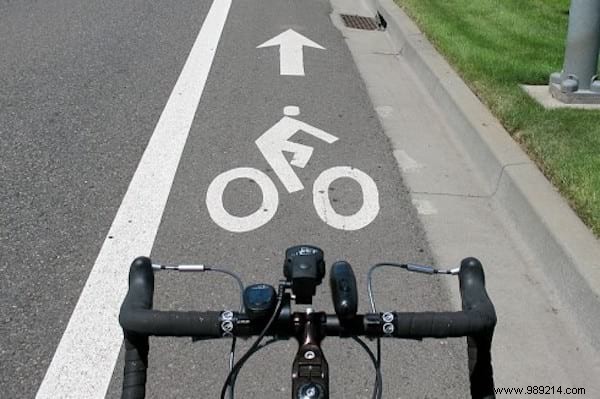
The researchers of this study indicate that going to work by bicycle or even on foot is far from being a widespread practice in Europe.
Indeed, only 3% of Britons use their bike to commute to work, and only 11% choose to walk — one of the lowest rates in Europe.
At the other end of the barometer, 43% of Dutch and 30% of Danes cycle daily .
And the French? We are unfortunately behind. According to this study, in fact, only 5% population goes to work by bike every day.
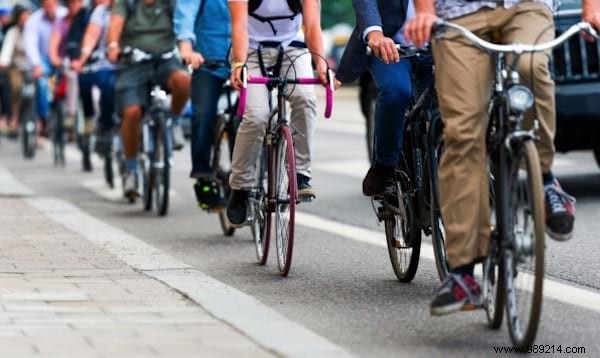
To better understand these differences, the researchers looked at more than 250,000 people , with an average age of 53 years.
The participants in the study all had a professional activity (salaried or self-employed).
Researchers asked participants by what means of transportation they usually traveled to work:car, public transportation, walking or cycling (or a combination of these).
They then grouped the participants into 5 categories:
- car journeys/public transport,
- journeys only on foot,
- bike trips,
- "mixed" walking routes and
- "mixed" bike routes.
The researchers followed these 250,000 people over a period of 5 years , noting any incidences of heart disease, cancer, and death.
They were careful to adjust their results taking into account other risk factors that may influence the health of each participant.
These factors include but are not limited to:participants' gender, age, income, ethnicity, smoking status, body mass index (BMI), participation in other types of physical activity, time spent sitting, and diet. food.
They also excluded participants who already had heart disease or cancer.

Researchers have found that in people who cycle to work, the death rate is reduced by 41% compared to those who travel by car or public transport.
But the benefits don't stop there!
Those who cycle to work are 52% less likely to die of heart disease and 40% less chance of getting cancer.
Similarly, cyclists reduce the risk of developing heart disease by 46% and the risk of developing cancer by 45%.
Researchers have found that these reductions in disease risk are greater in those who travel longer distances, for both cyclists and walkers.
These statistics make you want to get on a bike, don't you think?
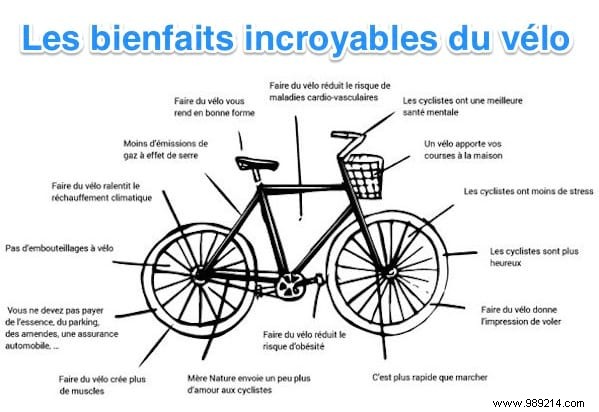
This exceptionally large study unequivocally shows that the health benefits of cycling are indisputable.
In particular, the results put an end to the uncertainties that previously existed regarding the concrete benefits against cancer, heart attacks and death.
These results demonstrate how much our political leaders need to help the bike take off, because it is a matter public health.
In addition, cycling also drastically reduces our greenhouse gas emissions.
Some countries have a big head start when it comes to pro-cycling policies.
This is particularly the case in Copenhagen and Amsterdam, where people choose to cycle because it is the easiest way to get around town .
You can see it very well in this photo of a bike-friendly junction in the Netherlands:
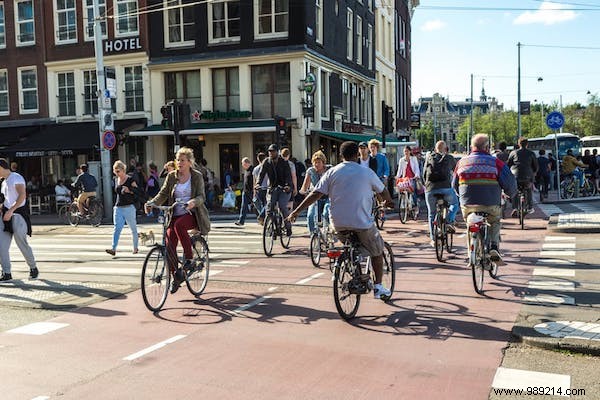
Impressive, isn't it?
And note that Strasbourg was crowned 4th cycling city in Europe and 1st cycling city in France (in 7th place, Paris is far from the French podium).
But be aware that these cities weren't always bike-friendly cities!
Copenhagen, Amsterdam and Strasbourg, these cities have all assumed public policies in favor of cycling for years to achieve this.
They have all taken steps to improve cycling infrastructure . How? 'Or' What ? Thanks in particular to:
- more cycle paths,
- the installation of self-service bicycles,
- subsidies for the purchase of bicycles,
- secure parking for bicycles,
- spaces to take your bike on public transport.
For cities and countries like France that are lagging behind, everything indicates that they absolutely must seize this opportunity!
So, will our leaders have enough courage to take up the challenge of a pro-bike policy?
Let's hope so, because in the long run, they have the power to radically improve our lives!
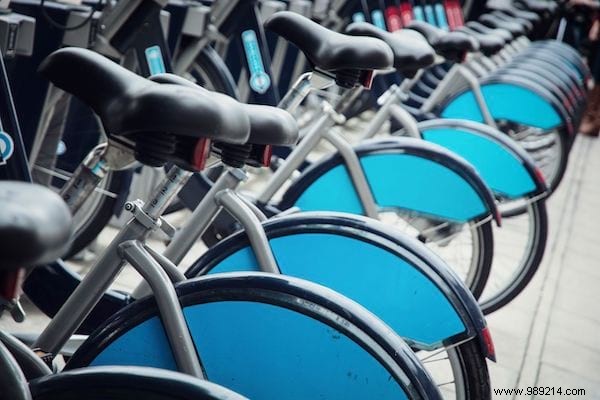
If you have lived in a large city in France, chances are your municipality offers self-service bicycles.
- In Paris, there are Vélib'.
- In Lyon, there are the Vélo'v.
- In Marseille, there is cycling.
- In Strasbourg, there is the Vélhop.
And many others ! Here is the full list by city. In any case, these services are super economical. For example, the Vélib' in Paris costs only €37 a year.
Compare this price to the cost of a car and the choice is quickly made!
But if your city doesn't have bike share, all is not lost!
For less than 690 €, you can acquire a great electric bike like this and thus travel great distances easily to get to work.
And if you don't have the budget, you can simply get yourself a city bike for around €200 like this one.
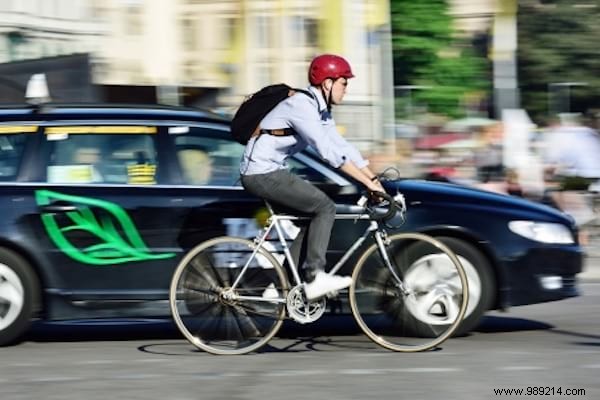
Taking your bike instead of your car is good for your health but also for your wallet!
Not only do you save fuel on a daily basis, but the wear and tear on your car is also reduced. Result, fewer visits to the mechanic.
And for those who live in the city and can do without a car altogether, the savings are even greater.
In addition to saving on gas and repairs, you also save on insurance each year, not to mention the exorbitant purchase price of the car and parking spaces.